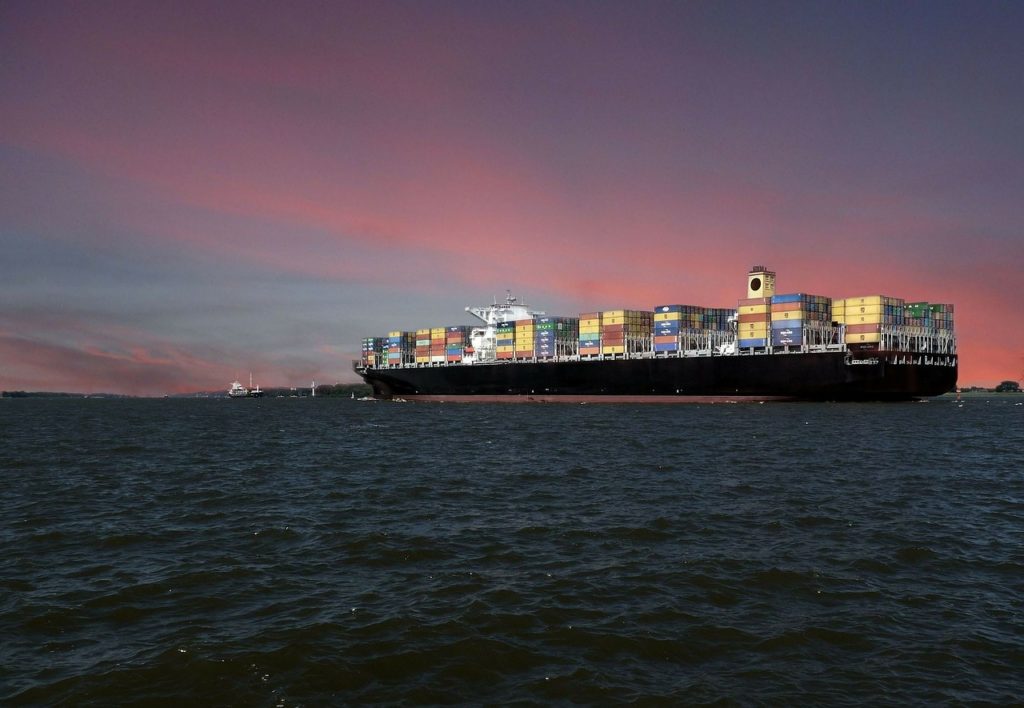With 90% of trade being carried out at sea, freight shipping is a crucial part of the global economy. But while over 90,000 ships traverse the globe annually, they pose an environmental threat that extends far beyond the ocean.
—
Container ships emit large amounts of toxic chemicals into the atmosphere, specifically sulphur and nitrogen oxides, and carbon dioxide (Co2). In fact, the shipping industry alone contributes around 2 to 3 percent of the world’s total greenhouse gas emissions. Were it a country, the global shipping industry would have the honour of being the sixth-highest Co2-emitter in the world, behind the United States, China, Russia, India and Japan, illustrating the gravity of the industry’s contribution to the climate crisis. In addition, accidental spills, operational discharges and the disposal of garbage from ships disrupt marine ecology.
Such a dire threat to the environment could not have escaped the attention of the world for too long, and it didn’t. In 2008, the International Maritime Organization (IMO), in collaboration with the government of Norway, launched the “GreenVoyage-2050” project, aiming to reduce greenhouse gas emissions in the shipping industry by at least 50% by 2050, focusing mainly on sea traffic in six high-priority regions – Asia, Africa, Caribbean, Latin America and the Pacific.
Freight shipping companies took note. Sabrina Chao, Managing Director of the Hong Kong-based Wah Kwong Maritime Transport Holdings, a large shipping company, says, “Over the last decade, there have been a lot of conversations in the shipping industry about what more we should be doing. Of course, everybody agrees that we want to leave a much better world for our next generations. We don’t want to be seen as polluters of the world. If you look back, we have already made great progress in reducing [the industry’s] carbon footprint. But there is a lot left to be done. That’s exactly the kind of conversation we are having at Baltic and International Maritime Council (BIMCO) and at Hong Kong Shipowners Association.”
Maersk Line, a Danish international container shipping company, has committed itself to deploying carbon-neutral vessels by 2030, as well as optimising networks. To bolster this commitment, the company has invested over US$1 billion in research and development since 2014, focusing on developing energy-efficient solutions.
You might also like: The Industry Rallying Against Plastic Pollution

Given that a cargo ship’s lifespan is around 30 years, and the IMO target is in just over 30 years, all major shipping corporations – not just Maersk Line – should endeavour to invest in building the next generation of carbon neutral ships. Unfortunately, however, this may not be a commercially viable solution for all shipowners. The American Bureau of Shipping (ABS) instead advocates using alternative fuels that would emit less pollutants.
However, even with their hands somewhat tied with regards to limited technological options and financial viability, there are still some avenues left for the maritime industry to explore. According to IMO’s Secretary-General, Kitack Lim, ships burn 15% of their fuel while in the ports. He has therefore highlighted the crucial role that ports have in supporting the maritime industry’s thrust towards reducing its carbon footprint. Other solutions include transporting less cargo, travelling at slower speeds to burn less fuel, increasing efficiency by bundling more cargo into bigger ships while cutting down the number of smaller fleets, and using new fuel types.
While the freight shipping industry may be reluctant to bear the cost of investing in technologies that will mitigate the damaging effects it has on the ocean, it would be wise to be cognisant of the fact that the ocean is its livelihood, and that it has the most to gain from protecting the ocean.

















